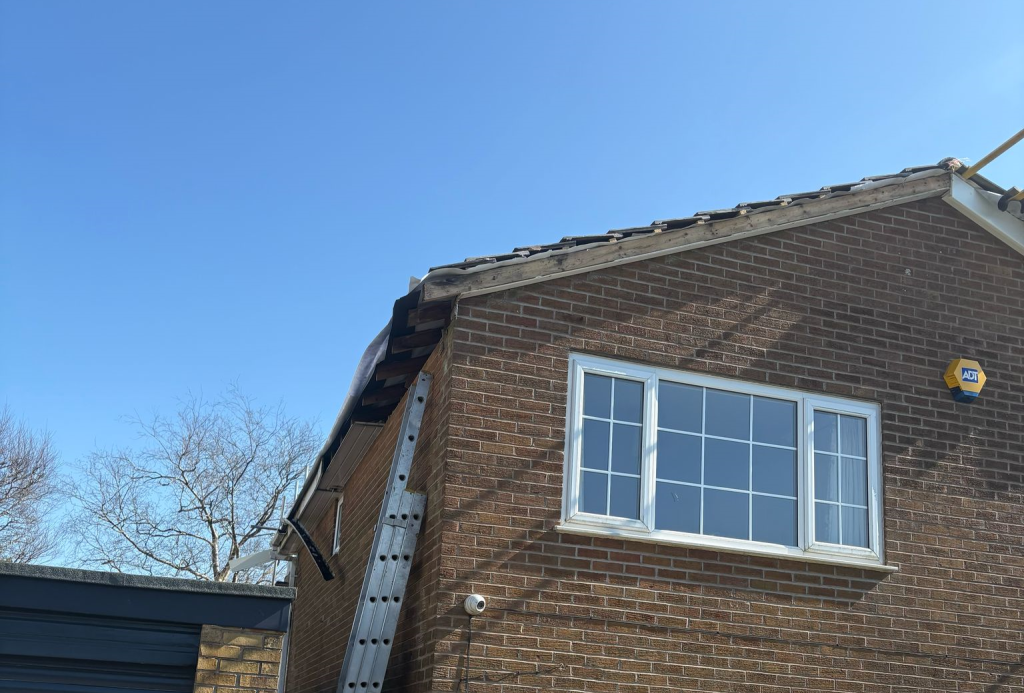The entire idea of having more space is extremely astonishing till undue stress kicks in. You may envision the noise, dust, the cost, and, worst of all, the fear that your home will fail to cope. The homeowners often start with a roof extension in the hope of better comfort, only to end up front to unexpected issues like weak leaks or cracked ceilings. You often deserve the best rather than any rushed job and structural gambles. Getting things right often starts with extensive planning, reliable advice, and skilled roofers who know about the ways to create a safe roof extension.
Importance of Roof Insulation
Homeowners often fail to consider insulation as a safety measure; however, it is one of the most integral elements of a strong roof extension. This is why the following sections include everything from the planning to the permits; however, the roofing contractors select the best material choices that have a direct impact on overall energy savings and long-term durability.
Start With a Clear Plan and Purpose
Roofing extensions often start with a piece of the puzzle to solve. It can be an extra bedroom, a huge kitchen, or more natural light. However, translating the requirements into a safe and structurally sound plan involves more than just your vision. It involves appropriate alignment of goals, layout, and engineering analysis.
Overlooking or neglecting this critical step eventually leads to further complications like the lack of proper airflow or roof sagging. Hiring expert local roofers can assist in forecasting such vulnerabilities and streamlining to create one that matches your existing home. Any qualified project helps to ensure that your roof is structurally safe and well-balanced to bear the load from its outset.
Understand Local Building Regulations
Neglecting the local codes will delay the roofing project, leading to possible legal disputes. Regulations dictate almost everything, ranging from the roofing height and setbacks to the need for insulation and drainage standards. The permits are no more than paperwork, as they can help safeguard your home and neighbourhood.
The new roof contractors who have local knowledge about the prevailing protocols can help guide you through the process more efficiently. They are responsible for handling the submissions, responding to council inquiries, and helping you avoid expensive redesigns halfway through the job.
Prioritise Energy Efficiency With Proper Insulation
Insulation can make your rooms highly comfortable as part of the overall structural equation. Poorly insulated roofing spaces trap moisture, overburden the HVAC system, and degrade the metal and timber. This is where the primary role of energy efficiency comes into action.
A roof with well-regulated internal temperatures and high-quality insulation helps reduce utility bills while protecting the structure against seasonal contraction or expansion. It is important to discuss the premium insulation materials with the contractor and how they are effortlessly integrated into the extension.
Assess the Structure Before Lifting a Finger
Unless you have already engineered your property, it is not designed to carry out any additional roofing layers. Before initiating the roofing job, the structural evaluations should be thoroughly conducted on the load-bearing walls, framing, and foundations.
Any missteps conducted in this phase may lead to uneven settlement or structural failures following its completion. A licensed structural engineer recognises the different reinforcements required. Hiring the roofing pros ensures that the extensions are well-integrated without overburdening the original build.

Choose the Right Contractors for the Job
Any roofing extension or any general handyman work is never intended for the job. Intricate structural transitions call for experts who are verified and certified to offer long-term safety.
Hiring certified and insured roofers with a proven track record of relevant projects is essential. The main perk behind hiring experts is that they have local knowledge about weather-resistant materials and compliance with building codes.
Don’t Overlook Water Flow and Guttering
Modifying the roofline impacts the way rainwater is drained from the home. Any inappropriate planning would lead to pooling, overflow, and internal leaks, damaging the walls and the insulation.
An appropriate level of drainage plan in place integrates effortlessly into your existing gutter systems with the new structures. Expert roofline services can help in designing the flow paths that reduce overall maintenance while safeguarding the foundation and siding from water damage.
Choose the Right Roofing Materials
Aligning your existing roof may be a cosmetic choice. However, it is more skin-deep. There are varied materials that carry with them varied weights, expansion features, and compatible insulation.
Flat roofing contractors often advise lightweight, thermally efficient materials to reduce any undue structural stress. It is important to discuss with your contractors the pros and cons of slate, tile, metal, or synthetic options that factor in the entire impact on energy efficiency and structural balance.
Prepare for Future Replacement Costs
Any roof extension modifications will help redefine your home’s dynamic through the roofing lifecycle. The material often mismatches, and age differences eventually lead to uneven damage that requires a full roof overhaul sooner.
It is important to prepare for roof replacement even while you plan for a full roof extension. Discuss with your roofing contractors to evaluate the whole roof system’s timeline so that you are not caught off guard in a couple of years.
Roof Repairs Are Part of Long-Term Planning
Maintenance is a requisite task that should never be overlooked as part of a roof extension project. To safeguard your investment, it is important to have a trustworthy team handle all the roof repair jobs. Overlooking minor issues can eventually turn into huge structural liabilities.
While selecting a roof repair contractor, check their service offerings and whether they offer warranties. Establishing a connection with a reliable roofer will cover everything involved.
Conclusion
A roof extension is a major investment that helps to add comfort, space, and future value to your home, only when it is laid on a foundation of intelligent design and structural safety. Having the right team at your side, a choice of the best materials, and a strong insulation strategy can make your vision safe and turn it energy-efficient. At Eversure Roofing, we add our years of skill, experience, and integrity to every project. Our experts are here to assist you at every step of your roofing project. Contact us today for a free estimate!
Frequently Asked Questions
Will a Roof Extension Affect My Home’s Resale Value?
A well-executed roof extension often increases property value. However, poor design or non-compliance with local codes can reduce resale appeal. Always prioritise structural quality and aesthetics.
What Insurance Should a Homeowner Have During a Roof Extension?
Homeowners should ensure their building insurance covers structural modifications. Contractors must carry liability and workers’ compensation insurance to protect against on-site accidents or damage. Contact us for guidance.
What Are Common Hidden Costs in Roof Extension Projects?
Unexpected costs may include utility rerouting, pest damage repair, or custom material delays. It’s wise to keep 10–15% of your budget aside for unforeseen expenses.
